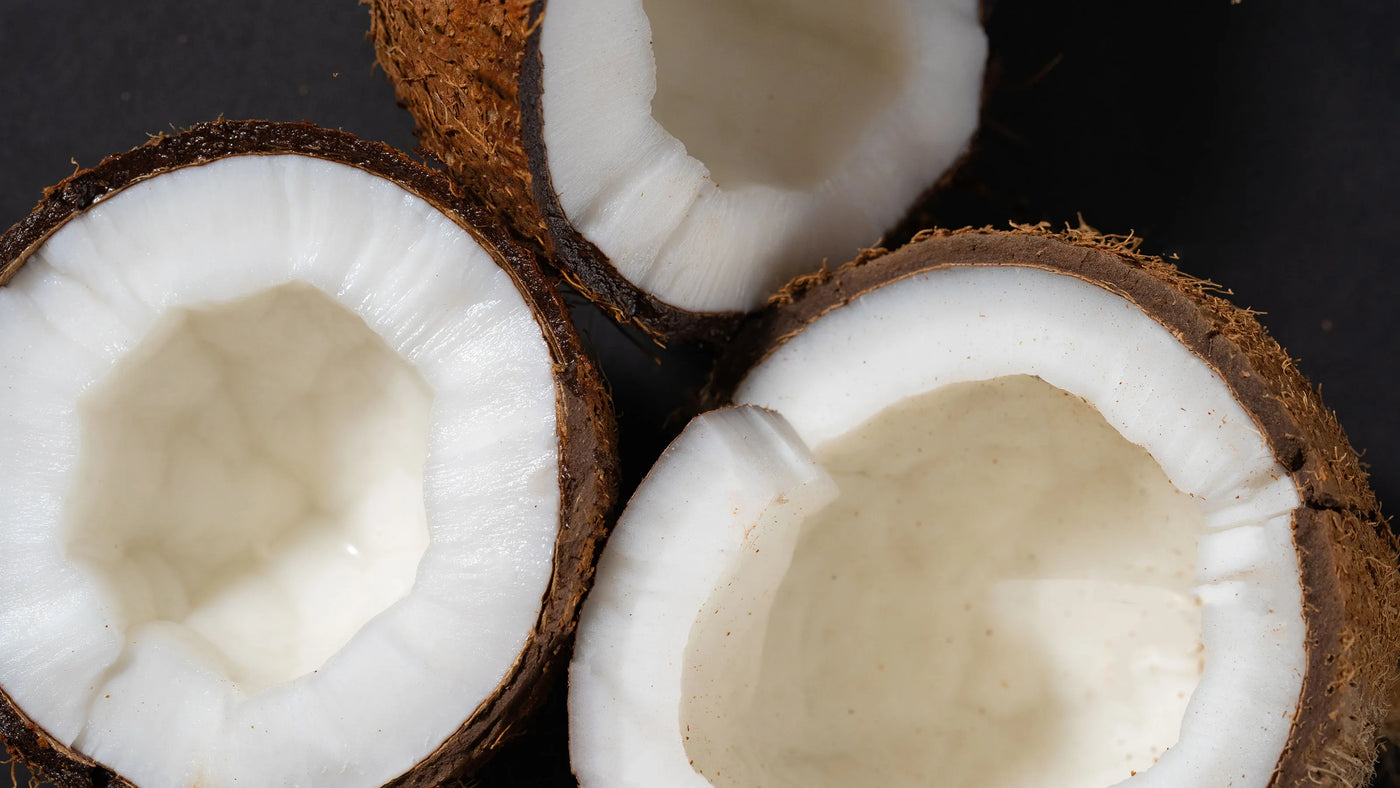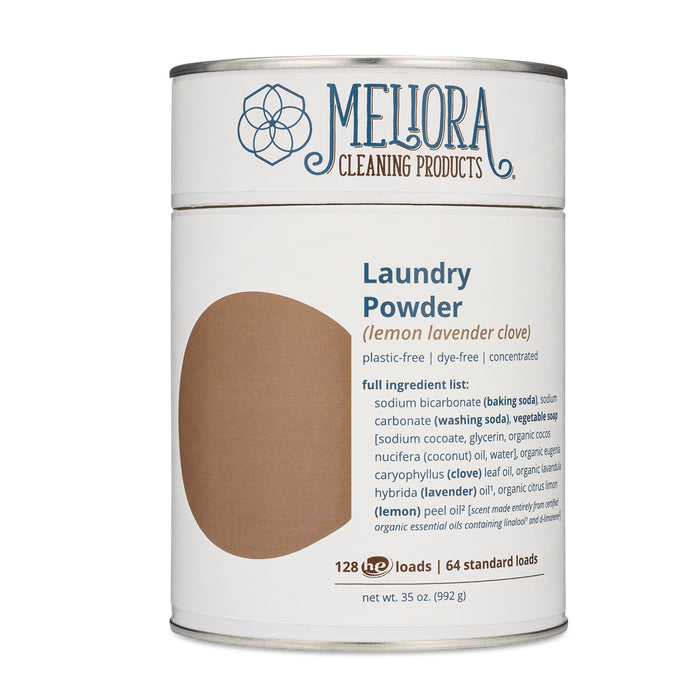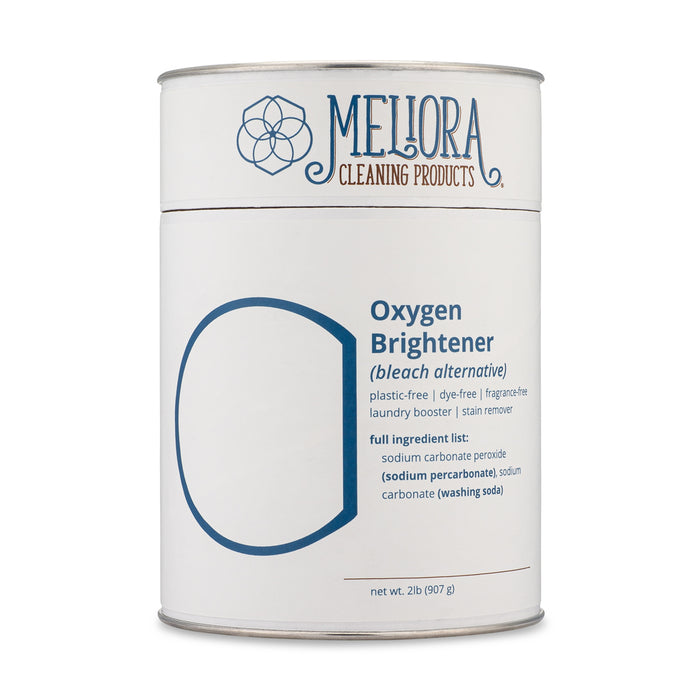Baking Soda
Baking Soda
Also known as: Sodium Bicarbonate
What is Baking Soda?
Baking soda is a white alkaline powder. It is a common household product with a wide range of uses including cooking, cleaning, and personal hygiene.
What is Baking Soda used for?
Baking soda is an effective odor neutralizer, making it ideal for laundry. It is also a gentle abrasive that is effective at removing tough stains and dirt from most hard surfaces in the kitchen and bathroom.
Where does Baking Soda come from?
Baking soda is derived from naturally-occurring trona ore and nahcolite. Trona is converted to washing soda, or sodium carbonate, and then treated with carbon dioxide to make baking soda. Nahcolite is a mineral form of baking soda. We source baking soda from both Wyoming and Colorado depending on availability.
Products with Baking Soda:
INCI Name: Sodium Bicarbonate
CAS Number: 144-55-8
Washing Soda
Washing Soda
Also known as: Sodium Carbonate, Soda Ash
What is Washing Soda?
Washing soda is a white powder that is chemically similar to baking soda, but more alkaline and slightly more abrasive.
What is Washing Soda used for?
Washing soda acts as a laundry booster, helping the water penetrate deeper into fabrics, getting more dirt out without the use of harmful chemicals.
Where does Washing Soda come from?
Washing soda is derived from naturally-occurring trona ore. We source our washing soda from Wyoming.
Products with Washing Soda:
INCI Name: Sodium Carbonate
CAS Number: 497-19-8
Sodium Percarbonate
Sodium Percarbonate
Also known as: Sodium Carbonate Peroxide
What is Sodium Percarbonate?
Sodium percarbonate is a white, crystalline, water-soluble solid. It is commonly used in laundry and cleaning products as a bleach alternative.
What is Sodium Percarbonate used for?
Sodium percarbonate is an oxidizer. When added to water, it'll break up organic compounds on fabrics and solid surfaces alike. It’s a sustainable, eco-friendly bleach alternative that can clean and whiten everything from laundry whites to coffee mugs. A true multi-purpose home cleaning booster without exposing your family to harmful chemicals.
Where does Sodium Percarbonate come from?
Sodium percarbonate is made from a combination of washing soda and hydrogen peroxide. We source sodium percarbonate from Alabama or Turkey depending on availability.
Products with Sodium Percarbonate:
INCI Name: Sodium Carbonate Peroxide
CAS Number: 15630-89-4
Sodium Cocoate
Sodium Cocoate
What is Sodium Cocoate?
Sodium cocoate is the chemical name of coconut oil that is saponified, or 'made into soap’. It is a biodegradable, petroleum-free alternative to synthetic detergents that helps you clean your home and clothes better.
What is Sodium Cocoate used for?
Sodium cocoate is the chemical that grabs onto both dirt and water to do the cleaning. Soap is amphiphilic, meaning one end of the soap molecule loves water (hydrophilic), while the other loves oil and hates water (hydrophobic). This results in the soap grabbing onto greasy, oily dirt, then pulling it into the water to rinse the dirt away, leaving everything clean and ready to go!
Where does Sodium Cocoate come from?
Sodium cocoate is made from a combination of organic coconut oil and sodium hydroxide, or lye. We ensure that no sodium hydroxide remains in our products by using enough oil to fully react with the lye. We manufacture sodium cocoate in our Chicago, IL factory using organic coconut oil sourced from the Philippines and Sri Lanka.
Products with Sodium Cocoate:
- Laundry Powder
- Laundry Powder Refill
- Soap Stick
- Laundry Starter Bundle
- All-Purpose Home Cleaner
- Gentle Home Cleaning Scrub
- Dish Soap
- Bath & Body Soap
INCI Name: Sodium Cocoate
CAS Number: 61789-31-9
Potassium Cocoate
Potassium Cocoate
What is Potassium Cocoate?
Potassium cocoate is the chemical name of coconut oil that is saponified, or 'made into soap’. It is a biodegradable, petroleum-free alternative to synthetic detergents that helps you clean your home and clothes better.
What is Potassium Cocoate used for?
Potassium cocoate is the chemical that grabs onto both dirt and water to do the cleaning. Soap is amphiphilic, meaning one end of the soap molecule loves water (hydrophilic), while the other loves oil and hates water (hydrophobic). This results in the soap grabbing onto greasy, oily dirt, then pulling it into the water to rinse the dirt away, leaving everything clean and ready to go!
Where does Potassium Cocoate come from?
Potassium cocoate is made from a combination of coconut oil and potassium hydroxide, or lye. We ensure that no potassium hydroxide remains in our products by using enough oil to fully react with the lye. We manufacture potassium cocoate in our Chicago, IL factory using organic coconut oil sourced from the Philippines and Sri Lanka.
Products with Potassium Cocoate:
INCI Name: Potassium Cocoate
CAS Number: 61789-30-8
Organic Coconut Oil
Organic Coconut Oil
Also known as: Cocos Nucifera Oil
What is Organic Coconut Oil?
Organic coconut oil is a plant-based oil that has a wide range of uses including cooking, cleaning, and making cosmetics and cleaning products.
What is Organic Coconut Oil used for?
Organic coconut oil is a highly effective fat for making soap. In order to make soap, you need fat. Any fat will do, but every fat has different strengths when turned into soap. Coconut oil has a very high "cleanability" score, which is why it's used in so many of our products.
Where does Organic Coconut Oil come from?
Organic coconut oil comes from the fruit of the coconut tree. We source organic coconut oil from the Philippines and Sri Lanka.
Products with Organic Coconut Oil:
- Laundry Powder
- Laundry Powder Refill
- Soap Stick
- Laundry Starter Bundle
- All-Purpose Home Cleaner
- Gentle Home Cleaning Scrub
- Dish Soap
- Foaming Hand Soap Refill Tablets
- Bath & Body Soap
INCI Name: Organic Cocos Nucifera Oil
CAS Number: 8001-31-8
Sodium Sunflowerate
Sodium Sunflowerate
What is Sodium Sunflowerate?
Sodium sunflowerate is the chemical name of sunflower oil that is saponified, or 'made into soap’. It is a biodegradable, petroleum-free alternative to synthetic detergents that helps you clean your home and clothes better.
What is Sodium Sunflowerate used for?
Sodium sunflowerate is the chemical that grabs onto both dirt and water to do the cleaning. Soap is amphiphilic, meaning one end of the soap molecule loves water (hydrophilic), while the other loves oil and hates water (hydrophobic). This results in the soap grabbing onto greasy, oily dirt, then pulling it into the water to rinse the dirt away, leaving everything clean and ready to go!
Where does Sodium Sunflowerate come from?
Sodium sunflowerate is made from a combination of sunflower oil and sodium hydroxide, or lye. We ensure that no sodium hydroxide remains in our products by leaving a small amount of excess oil. We manufacture sodium sunflowerate in our Chicago, IL factory using organic sunflower oil sourced from Wisconsin.
Products with Sodium Sunflowerate:
INCI Name: Sodium Sunflowerate
CAS Number: 888888-10-7
Potassium Sunflowerate
Potassium Sunflowerate
What is Potassium Sunflowerate?
Potassium sunflowerate is the chemical name of sunflower oil that is saponified, or 'made into soap’. It is a biodegradable, petroleum-free alternative to synthetic detergents that helps you clean your home and clothes better.
What is Potassium Sunflowerate used for?
Potassium sunflowerate is the chemical that grabs onto both dirt and water to do the cleaning. Soap is amphiphilic, meaning one end of the soap molecule loves water (hydrophilic), while the other loves oil and hates water (hydrophobic). This results in the soap grabbing onto greasy, oily dirt, then pulling it into the water to rinse the dirt away, leaving everything clean and ready to go!
Where does Potassium Sunflowerate come from?
Potassium sunflowerate is made from a combination of sunflower oil and potassium hydroxide, or lye. We ensure that no potassium hydroxide remains in our products by leaving a small amount of excess oil. We manufacture potassium sunflowerate in our Chicago, IL factory using organic sunflower oil sourced from Wisconsin.
Products with Potassium Sunflowerate:
INCI Name: Potassium Sunflowerate
CAS Number: N/A
Organic Sunflower Oil
Organic Sunflower Oil
Also known as: Helianthus Annuus Oil, Sunflower Seed Oil
What is Organic Sunflower Oil?
Organic sunflower oil is a plant-based oil that has a wide range of uses including cooking, cleaning, and making cosmetics and cleaning products.
What is Organic Sunflower Oil used for?
Organic sunflower oil is a highly effective fat for making soap. In order to make soap, you need fat. Any fat will do, but every fat has different strengths when turned into soap. Sunflower oil made into soap mimics the lather and softness of olive oil, but can be sourced locally from the Great Lakes region.
Where does Organic Sunflower Oil come from?
Organic sunflower oil comes from the seeds of the sunflower plant. We source organic sunflower oil from Wisconsin. Even better, we return the empty barrels to the vendor to reuse, making this a zero-waste ingredient.
Products with Organic Sunflower Oil:
INCI Name: Organic Helianthus Annuus Seed Oil
CAS Number: 8001-21-6
Glycerin
Glycerin
What is Glycerin?
Glycerin is a transparent, odorless, non-toxic liquid byproduct of soapmaking.
What is Glycerin used for?
Glycerin is naturally created when oil is converted into soap, making it a byproduct rather than a true ingredient. It is an effective skin moisturizer and a solvent that can help dissolve stains and dirt.
Where does Glycerin come from?
Glycerin is a byproduct of saponification. We never add additional glycerin to our products. Because we only use organic coconut and sunflower oil, the glycerin in our products is 100% vegan, cruelty-free, and never contains palm oil.
Products with Glycerin:
- Laundry Powder
- Laundry Powder Refill
- Soap Stick
- Laundry Starter Bundle
- All-Purpose Home Cleaner
- Gentle Home Cleaning Scrub
- Dish Soap
- Foaming Hand Soap Refill Tablets
- Bath & Body Soap.
INCI Name: Glycerin
CAS Number: 56-81-5
Organic Lavender Essential Oil
Organic Lavender Essential Oil
Also known as: Lavandula Hybrida Grosso Oil
What is Organic Lavender Essential Oil?
Lavender essential oil is a scented oil derived from lavender flowers. It is a natural, plant-based alternative to synthetic fragrance blends, which may contain a number of hidden chemicals.
What is Organic Lavender Essential Oil used for?
Lavender essential oil adds a fresh, floral scent to our laundry powder and soaps.
Where does Organic Lavender Essential Oil come from?
Lavender essential oil is made from steam-distilled lavender flowers. Lavandula hybrida grosso is a hybrid lavender that is used to make most of the lavender essential oil produced today. We source organic lavender essential oil from Spain and other countries depending on availability.
Products with Organic Lavender Essential Oil:
- Laundry Powder - Lavender
- Laundry Powder Refill - Lavender
- Laundry Powder - Lemon-Lavender-Clove
- Laundry Powder Refill - Lemon-Lavender-Clove
- Laundry Starter Bundle - Lavender
- Laundry Starter Bundle Powder - Lemon-Lavender-Clove
- Foaming Hand Soap Refill Tablets - Lavender
- Bath & Body Soap - Lavender
INCI Name: Organic Lavandula Hybrida Grosso Essential Oil
CAS Number: 8022-15-9
Organic Lemon Essential Oil
Organic Lemon Essential Oil
Also known as: Citrus Medica Limonum Oil, Lemon Peel Oil
What is Organic Lemon Essential Oil?
Lemon essential oil is a scented oil derived from cold-pressed lemons. It is a natural, plant-based alternative to synthetic fragrance blends, which may contain a number of hidden chemicals.
What is Organic Lemon Essential Oil used for?
Lemon essential oil adds a zesty, citrus scent to our laundry powder and soaps.
Where does Organic Lemon Essential Oil come from?
Lemon essential oil is made from the fruit of the lemon tree. Citrus medica limonum is a hybrid of citron and polemo with uses ranging from food and household products to the production of citric acid. We source organic lemon essential oil from Italy and other countries depending on availability.
Products with Organic Lemon Essential Oil:
- Laundry Powder - Lemon
- Laundry Powder Refill - Lemon
- Laundry Powder - Lemon-Lavender-Clove
- Laundry Powder Refill - Lemon-Lavender-Clove
- Laundry Starter Bundle - Lemon
- Laundry Starter Bundle Powder - Lemon-Lavender-Clove
- Dish Soap - Lemon
INCI Name: Organic Citrus Medica Limonum Peel Oil
CAS Number: 8008-56-8
Organic Clove Essential Oil
Organic Clove Essential Oil
Also known as: Eugenia Caryophyllus Oil, Clove Bud Oil
What is Organic Clove Essential Oil?
Clove essential oil is a scented oil derived from clove plants. It is a natural, plant-based alternative to synthetic fragrance blends, which may contain any number of hidden chemicals.
What is Organic Clove Essential Oil used for?
Clove essential oil adds a warm, spicy scent to our laundry powder.
Where does Organic Clove Essential Oil come from?
Clove essential oil is made from the steam-distilled buds or leaves of the clove plant. Eugenia caryophyllus can refer to oil from either the leaf or the bud. We source organic clove bud essential oil from Sri Lanka and other countries depending on availability.
Products with Organic Clove Essential Oil:
- Laundry Powder - Lemon-Lavender-Clove
- Laundry Powder Refill - Lemon-Lavender-Clove
- Laundry Starter Bundle Powder - Lemon-Lavender-Clove
INCI Name: Organic Eugenia Caryophyllus Bud Oil
CAS Number: 8000-34-8
Organic Peppermint Essential Oil
Organic Peppermint Essential Oil
Also known as: Mentha Piperita Oil, Peppermint Leaf Oil
What is Organic Peppermint Essential Oil?
Peppermint essential oil is a scented oil derived from peppermint leaves. It is a natural, plant-based alternative to synthetic fragrance blends, which may contain a number of hidden chemicals.
What is Organic Peppermint Essential Oil used for?
Peppermint essential oil adds a festive, invigorating scent to our laundry powder, cleaning scrub, and soaps.
Where does Organic Peppermint Essential Oil come from?
Peppermint essential oil is made from steam-distilled peppermint leaves. Mentha piperita is grown in abundance on farms in India. We source organic peppermint essential oil from India and other countries depending on availability.
Products with Organic Peppermint Essential Oil:
- Laundry Powder - Peppermint
- Laundry Powder Refill - Peppermint
- Gentle Home Cleaning Scrub - Peppermint Tea Tree
- Foaming Hand Soap Refill Tablets - Peppermint
- Bath & Body Soap - Peppermint
INCI Name: Organic Mentha Piperita Leaf Oil
CAS Number: 8006-90-4
Organic Lemongrass Essential Oil
Organic Lemongrass Essential Oil
Also known as: Cymbopogon Flexuosus Oil
What is Organic Lemongrass Essential Oil?
Lemongrass essential oil is a scented oil derived from the lemongrass plant. It is a natural, plant-based alternative to synthetic fragrance blends, which may contain a number of hidden chemicals.
What is Organic Lemongrass Essential Oil used for?
Lemongrass essential oil adds an uplifting, earthy scent to our hand and body soaps.
Where does Organic Lemongrass Essential Oil come from?
Lemongrass essential oil is made from steam-distilled lemongrass stalks. Cymbopogon flexuosus is a perennial grass that is native to India, Sri Lanka, Burma, and Thailand. We source organic lemongrass essential oil from India and other countries depending on availability.
Products with Organic Lemongrass Essential Oil:
INCI Name: Organic Cymbopogon Flexuosus Oil
CAS Number: 91844-92-7
Organic Tea Tree Essential Oil
Organic Tea Tree Essential Oil
Also known as: Melaleuca Alternifolia Oil, Tea Tree Leaf Oil
What is Organic Tea Tree Essential Oil?
Tea tree essential oil is a scented oil derived from tea tree leaves. It is a natural, plant-based alternative to synthetic fragrance blends, which may contain a number of hidden chemicals.
What is Organic Tea Tree Essential Oil used for?
Tea tree essential oil adds a medicinal, woody scent to our cleaning scrub and soaps.
Where does Organic Tea Tree Essential Oil come from?
Tea tree essential oil is made from steam-distilled tea tree leaves. Melaleuca alternifolia is a small tree that is native to Australia. We source organic tea tree essential oil from China and other countries depending on availability.
Products with Organic Tea Tree Essential Oil:
- Gentle Home Cleaning Scrub - Peppermint Tea Tree
- Foaming Hand Soap Refill Tablets - Tea Tree
- Bath & Body Soap - Tea Tree
INCI Name: Organic Melaleuca Alternifolia Oil
CAS Number: 68647-73-4
Laundry Powder Ingredients
Oxygen Brightener Ingredients
Soap Stick Ingredients
Gentle Home Cleaning Scrub Ingredients
Dish Soap Bar Ingredients
All-Purpose Home Cleaner Ingredients
Foaming Hand Soap Ingredients
Bath & Body Soap Bar Ingredients
Our Ingredient Certifications
-
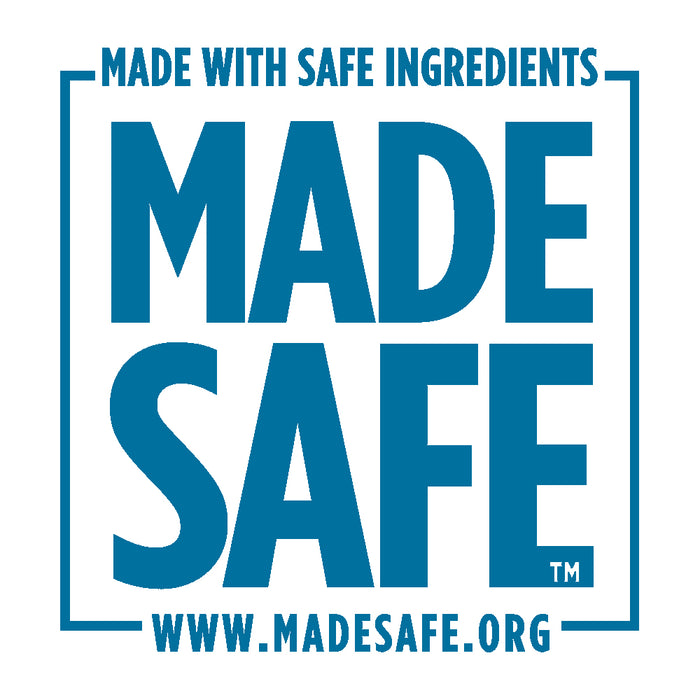
MADE SAFE® Certified Ingredients Since 2016
MADE SAFE® provides America’s first comprehensive human health-focused certification for non-toxic products. All our products are MADE SAFE® certified, meaning they meet the strictest ingredient screening requirement in the industry and are made with ingredients that are not known or suspected to harm human health, animals, aquatic life, or ecosystems.
-
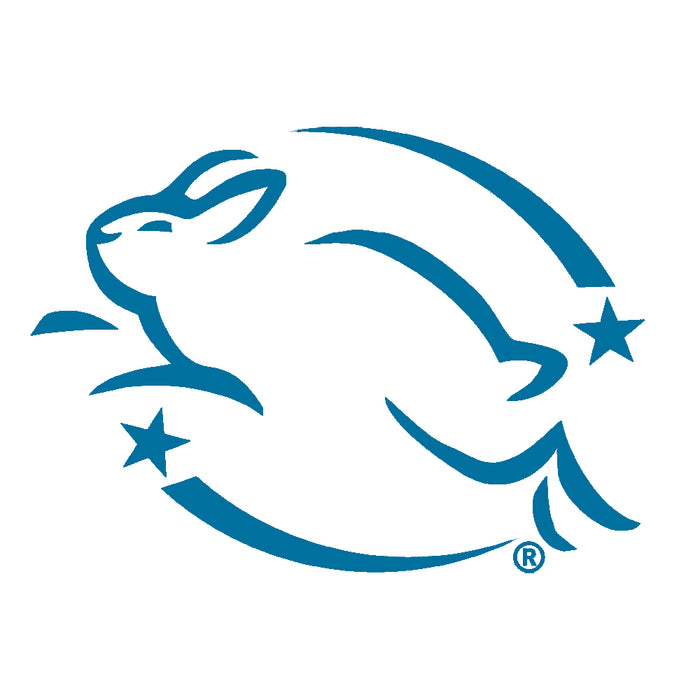
Leaping Bunny Certified Cruelty-Free Since 2017
Leaping Bunny is the highest standard for companies that are committed to using no animal testing. All our products are cruelty-free certified, meaning they are guaranteed to be 100% free of new animal testing. In order to be certified, companies and their ingredient suppliers must pledge to clear animal testing from all stages of product development.
-

EWG Guide to Healthy Cleaning Graded A
The Environmental Working Group rates home cleaning products A–F scale in their Guide to Healthy Cleaning. All of our products that have been reviewed by EWG have receive A ratings, the highest available grade.
If you'd like to see our newer products rated by EWG, please contact them and request their review.

